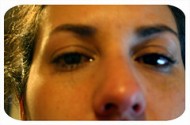“I need to be okay” is the conditioned mantra of the human mind, so the ego pursues a need to justify itself, even if it has to ignore the painful issues in one’s life. These ego defenses are not to be confused with defending the truth. Clarifying the difference may make all the difference in the world right now, and whether you descend through the perpetuation of self-deceptions or serve as a vessel of change for humanity’s good.
An ego defense is a mechanism of controlling self-protection. When a part of you feels afraid and unsafe, it will create another version of reality that is perceived to be safer. To confront your emotional pain or be exposed in your pain in front of another person is too frightening to your ego because emotions may get out of control. An ego defense is an attempt to avoid the vulnerability and regain control.
As an adult, an ego defense arises as a subconscious reaction to a perceived threatening circumstance. However, self-protection is rooted in long-standing coping patterns that were once deemed essential by your inner child to gain approval, belonging, and acceptance. Left unhealed, your wounded self continues to seek justification to survive the discomfort of love’s absence and be okay.
These are some of the common ways ego defends. Which ones do you tend to use most?
Rationalizing; applying a false reason to be right; facts are twisted to support your own behaviours
Example; “Of course I had to lie to her, it was for her own good.”
Denial: completely refusing to acknowledge the reality of the situation
Example: “What addiction? I only have one drink every night.”
Minimizing; making less of the emotional pain.
Example: “Whatever. I don’t mind. It’s not like it happens every day.”
Intellectualizing; avoiding the emotional vulnerability by focusing on logical reasoning or thinking.
Example: “On this matter, I first have to weigh in on the possibility that……….”
Projecting; putting your own unacceptable or uncomfortable thoughts about yourself onto others; blaming.
Example: I’m not an angry person. He’s the angry person. He makes me feel like I want to explode.”
However, there are many other creative ways that you may guard yourself to avoid vulnerability with yourself and others, such as:
- turning a blind eye to self-honesty and what you already know to be true
- deflecting the focus on you by not responding directly to a question
- using humour to avoid the tension
- exaggerating the problem to justify your victim consciousness
- repressing painful beliefs, emotions, or memories
- inflating your importance to avoid seeing yourself as equal to others with similar painful experiences
- digging in your heels despite contrary evidence
- transferring inner conflict to physical pain
- regressing to earlier stages of development
- shutting down another person’s right to expression and choice because you’re uncomfortable
- using social acceptability to act out unacceptable or destructive behaviours such as addictions
- being alarmist or dramatic to avoid vulnerability
- drawing attention to yourself to bolster yourself beyond insecurity
- refusing to co-operate, confront or negotiate
- fixating on mental thinking instead of feeling
- lying to cover up shame
- being intimidating
- isolating or withdrawing
- sacrificing your personal needs to please others and get love and acceptance
- being silent or aloof, and not sharing
- staying busy with distractions
- hiding your spiritual self (is this you? – see a case study, scroll to the bottom of the page)
All these ego defenses perpetuate self-deception because they avoid owning the truth of what currently exists in one’s life and the truth of life itself. A person can behave defensively not just in an isolated experience, but as a way of being in this world. Through this subconscious filter, life is unsafe, and s/he is separate from others. Others are feared and can’t be trusted, so the person shields themselves from true emotional connection. God is usually an external force and also to be feared, recycling victim-victimizer controller programs and self-enslavement.
If you are willing to be vulnerable and own your emotions, choices and behaviours, you demonstrate self-responsibility and self-acceptance of your humanness and God-self. Nobody enjoys feeling unsafe, but to continue to use old ego defenses stunts emotional growth. Through healing and the development of your emotional and spiritual maturity, you recognize that there is no shame in learning. Being vulnerable can be transformative. You clarify your truth and learn to trust your God-Self, becoming confident and capable, with the ability to give and receive love with comfort, and connect to yourself and others with honesty and transparency. Then you know you are okay, and no longer have a need to justify yourself to anyone in any way.
Defending is appropriate when someone is trying to make you other than the truth of who you are: your boundaries are being violated, your free will is being usurped, or your truth is being twisted. However, this defending does not require anger, self-inflation, competition or any form of attack or justification. It is done through authentic power and neutral observation, honouring truth. If you are already stable and activated in your inner core Spirit, there is nothing to do but hold steady or recommit to your Highest Expression as One with God.
In this ascension timeline, the call is to take a stand for truth and live your truth. Humanity cannot grow unless we stop protecting old ego and archontic deceptions. They have to be called out into the open so shame and lies can be dissolved in the Light. We have the choice to know that we are already okay in our God power and right, and Oneness.

